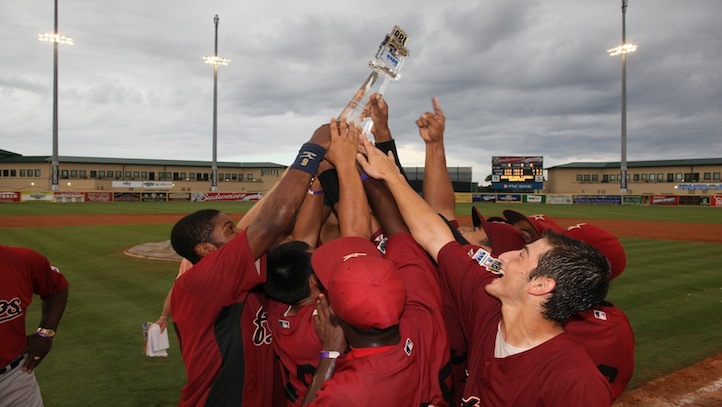Swinging For the Fences
04.13.2011
SPORTS

Detroit used to be a city where players were signed to the major leagues out of high school. Former Detroit Tigers outfielder Ike Blessitt was a local star in those days. “There was so much competition in the city,” he says. He started playing Little League in Detroit at age seven, signed to the Tigers in 1967 and played in the 1972 season. He went on to play in Mexican leagues and returned to Detroit in the late ’80s, where he has worked with inner-city and suburban kids. “They need a place in the inner city for the kids to get off the street and go to continue to stay in shape in the winter,” Blessitt said. “It’s a shame we got all these ballplayers here in Detroit and they need to drive 20 miles to work out. In the inner city, the parents don’t have the money to do that, so kids are working out in garages.”
Early training is critical to developing competitive players. “If it’s done in the primary stages in tee ball and coach pitch, 12-and-under kids are given a skill set,” Curtis said. “You give a kid the rudimentary elements of how to play the game, how to get in the batter’s box, how to hold the bat, how to take your hand inside the ball, how to get a good jump to catch the ball.” Targeting kids under 12, RBI recently launched programs in eight cities, with plans to expand even more.
Another MLB initiative is Urban Youth Academy, which first opened in Compton, California. Three additional academies have opened in Philadelphia, Houston and Miami. More than 50 student-athletes have signed professional contracts, and more than 110 Urban Youth Academy student-athletes have gone on to participate in collegiate baseball and softball programs.
“The new Compton academy, modeled after academies in the Dominican Republic and other places, as well as RBI, will be helpful,” Lapchick said. “In spite of that, it appears as if baseball will virtually skip a generation of African-Americans, and if there is to be [increased interest and participation], it will be in the future and not in the short-term.”
A fundamental aspect of baseball is overcoming challenges, and many remain confident the sport will again flourish. “Baseball is built on failure,” Curtis said. “Baseball is like life: You’re not going to be successful all the time. If you’re successful just a portion of the time, you’re going to have ultimate success.”





